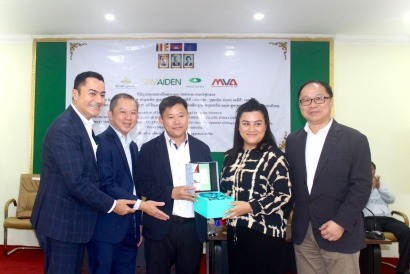
The MOU serves as a framework for the joint undertaking of feasibility studies with third parties on various aspects of the project, namely the economic benefits and other ancillary impacts.
To execute the project, MST will provide the land for the project, and facilitate approval, documentation and construction.
MVA will be providing business consultancy and support, while Panna is responsible for the financial and commercial assistance for the undertaking of research, assisting project development and supplementing ongoing management, said Samaiden.
Samaiden Cambodia will supply the engineering, procurement, construction and commissioning (EPCC) work scope and advice on the feasibility study, as well as facilitate the environmental, social and governance (ESG) principles of the project.
“Cambodia needs more green and resilient investments in low-carbon and climate resilient infrastructure to ensure adaptability to the impact of climate change,” said Samaiden Cambodia executive director Fong Yeng Foon.
“More importantly, given the agriculture sector’s contribution to greenhouse gas emissions, efforts on this front will come from mitigating menthane-intensive rice and livestock production, and promoting the use of biogas in livestock management, organic fertilisers and deep fertilizer technology,” he added.

